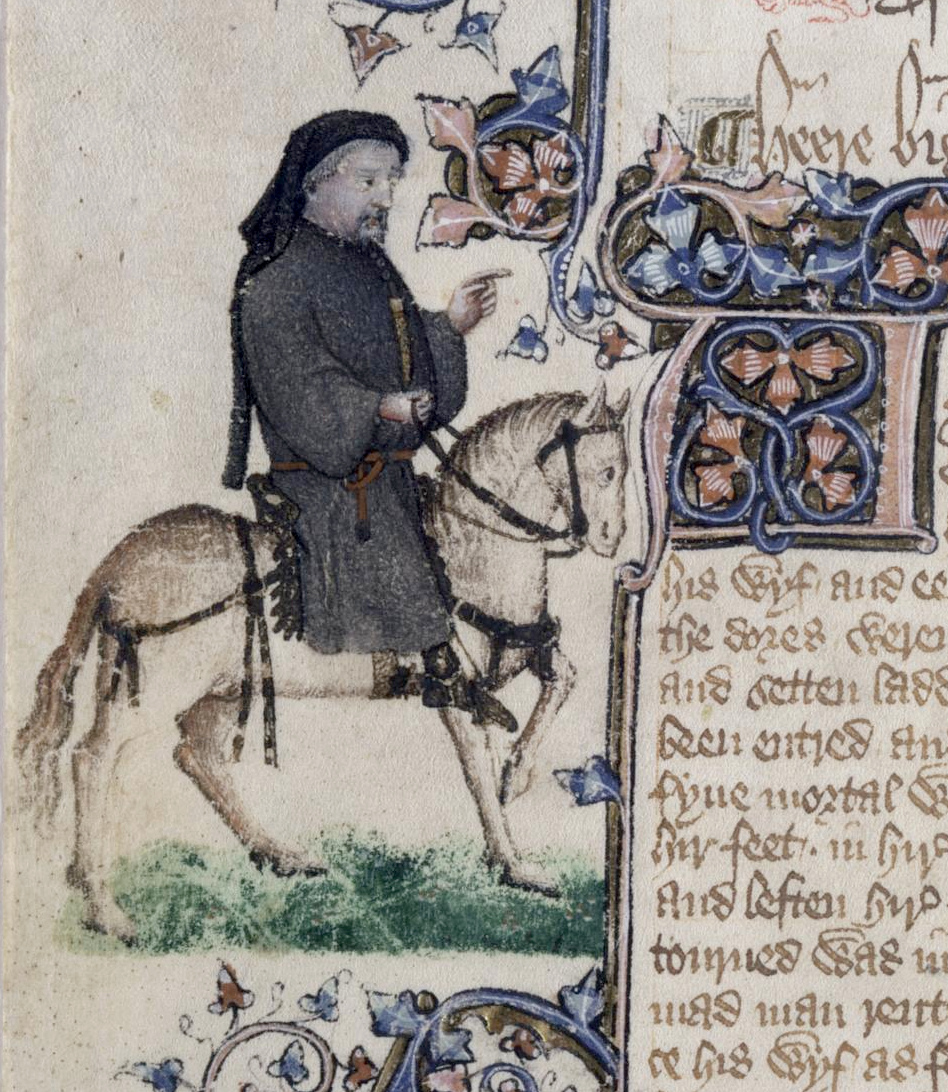According to Aelfric, the three medieval estates are the laboratores (those who labor for our living), the oratores (those who plead for our peace with God), and the bellatores (those who battle to protect our towns and defend our land against an invading army).
In the Frame tale, Chaucer doesn't describe the stories but describes the people who tells their tales. The frame tale is an estates satire because it's a genre that satirizes the corruption that happens within the three medieval social estates (clergy, nobility, and peasantry). However, the general prologue provides an ideal member of each estate as a model with which the others can be compared and contrasted, giving examples of their faults and virtues.







 Jeweled Cross and Pigs bones, relics of the Pardoner.
Jeweled Cross and Pigs bones, relics of the Pardoner.


